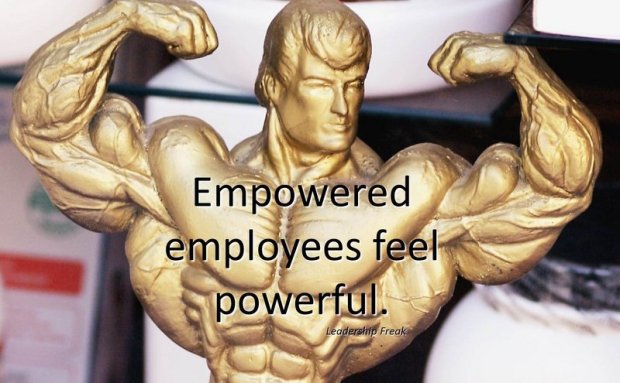Yet another outstanding post by Dan Rockwell
Permission-askers don’t feel powerful. Permission-giving keeps people in line and subservient.
Power hungry leaders create disempowering cultures. Do the people around you feel powerful?

The person giving permission is the person in control.Empowerment is gibberish until people believe it’s safe to act without permission.
The proof of empowerment is the absence of meddlesome intervention.
Empowerment elevates the status of others.
Empowered not disconnected:
Empowered team members need access and connection to leadership, not control.Successful empowerment is collaborative, not isolated. Updates are more important when team members are empowered. Leaders need to keep their finger on the pulse of organizational life.
Employees who balk at giving updates are siloed, kingdom builders. Empowerment isn’t permission to do whatever you want. Help people connect:
- Paint the big picture.
- Show them where they fit in.
- Expect alignment with organizational mission.
3 enemies of empowerment:
- Frequent interventions.
- Foggy goals.
- Fearful leaders.
12 requirements for powerful empowerment:
- Confident leaders who elevate others. The people at the top have the most power to make people feel safe. Fearful workers reflect controlling leaders.
- Frequent feedback given in small doses.
- Clear boundaries. Transparency regarding nonnegotiable policies, for example.
- Predictable responses to failure.
- Structures that protect against catastrophic failure.
- Reluctant intervention from leadership.
- Team members who know and leverage their strengths and weaknesses.
- Shared values. Strongly aligned values are the foundation of trustworthy empowerment. Never give power to those who don’t share your values.
- Clear vision. Empowerment is chaos apart from clear vision.
- Short-term goals that provide daily direction.
- Shared and agreed upon accountability.
- Taking responsibility as well as authority. Empowered people own and fix their own screw ups. Running to mommy-leader to make everything OK reinforces helplessness.
What must be in place for team members to feel powerful?